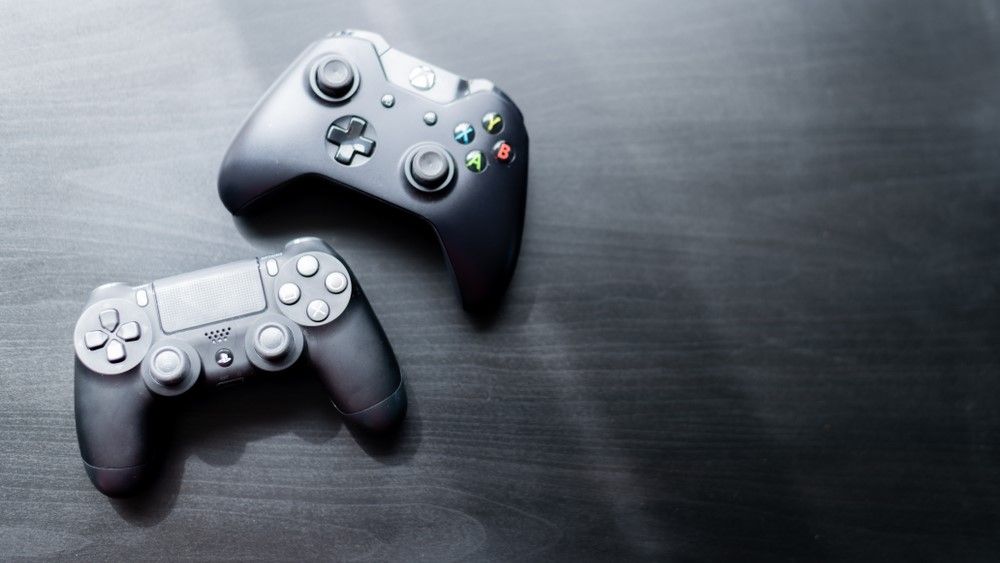Planning your next games console purchase, and want to understand a little bit better how your existing game library will fare on next-gen systems? In previous generations, it has been as simple as just putting in the cartridge or CD of the previous console, but now it’s a little bit more complicated. Read on to find out a little bit more information on how backwards compatibility and game purchases will work on Next-Gen (or at least, some of what we know so far).
 X Marks the Spot – Backwards Compatibility on Xbox Series X
X Marks the Spot – Backwards Compatibility on Xbox Series X
Critically-acclaimed titles from a given popular game studio or team often get ported, up-scaled and re-released again on newer platforms, and many gamers are reluctant to purchase the same game a couple of years later just for a newer version. Well, alongside promises for backwards compatibility with Xbox One titles on the Series X, Microsoft has also introduced a revolutionary new feature for the console, named Xbox Smart Delivery. As Tech Radar have outlined in their guide to the feature, it relates to game ownership, and means that if you buy one version of a game, you’ll automatically gain access to it on all different Xbox platforms where it’s available, meaning you won’t have to buy twice!
For a perfect example of a game and developer that has already committed to this idea, CD Projekt Red, the Polish team behind the hotly anticipated CyberPunk 2077, have already pledged to gamers that buy the game on Xbox One that they will receive the next-gen version free of charge when it releases. This is, of course, an exciting pro-consumer move that will no doubt save many people some major money down the line.
The specifics of how this is going to take shape visually within your digital game library is yet to be revealed, and it also seems that video game publishers may be able to decide for themselves whether they want titles to be available ubiquitously across platforms. It’s probably likely that all developers and publishers will adopt this attitude down the line, seeking further revenue in different ways, as if one company chooses to charge twice for their game on different platforms, it will stick out like a sore thumb and likely result in negative press.
PlayStation Pluses – Backwards Compatibility
With fans still waiting on the console hardware design reveal, only recently getting a glimpse at gameplay (courtesy of Epic Games through their Unreal Engine 5 demo showcase recently), and seeing a sneak preview of the new DualSense controller, not too much has been said about backwards compatibility on the PlayStation 5, or at least in terms of how it’s going to fare with regards to buying a title towards the end of this current generation that will then have another version releasing on next-gen. With Microsoft having laid down a pretty great benchmark going forward, many expect Sony’s approach to be similar.
Those that have purchased a PSVR headset can breathe a sigh of relief for their wallets, as Sony has also confirmed that the units will be compatible and usable with the PS5. This isn’t to say that they won’t maybe be outdated in due time, however, as it is likely that the company will eventually release an updated revision of the system, particularly with the hand controllers.
Nintendo’s Approach
Currently enjoying massive success with its hybrid Nintendo Switch platform, Nintendo is a company offering a wide range of different first-party titles and indies, with many small developers seeing the opportunity on the eShop that wasn’t there in the Wii U era. Nintendo has perhaps the greatest backlog of games for previous systems, comparable to the Disney vault in video game form, and so getting backwards compatibility of some sort on the Switch is imperative. Aside from re-releasing some titles with updated graphics and features, Nintendo’s current solution for their NES and SNES catalogues is to offer a comprehensive selection for free via their Nintendo Online Service, offering them to anyone that has the membership.
For those that are interested in playing the essential Nintendo classics in an authentic way, Nintendo has also released in the last few years some small retro consoles – The Nintendo Mini Classic and the Super Nintendo Mini Classic. Each comes with replica controllers and small consoles that output to HDMI on your television, collecting some of the most well-known and revered games. With rumours circulating at the moment that we are set to receive a Super Mario 64 rerelease (alongside some of Mario’s other popular 3D titles) as part of the 35th-anniversary celebration of the moustachioed plumber, only time will tell whether we will get an N64 mini classic rendition, or if the pioneering 3D period of Nintendo will exist through digital downloads on the eShop.



